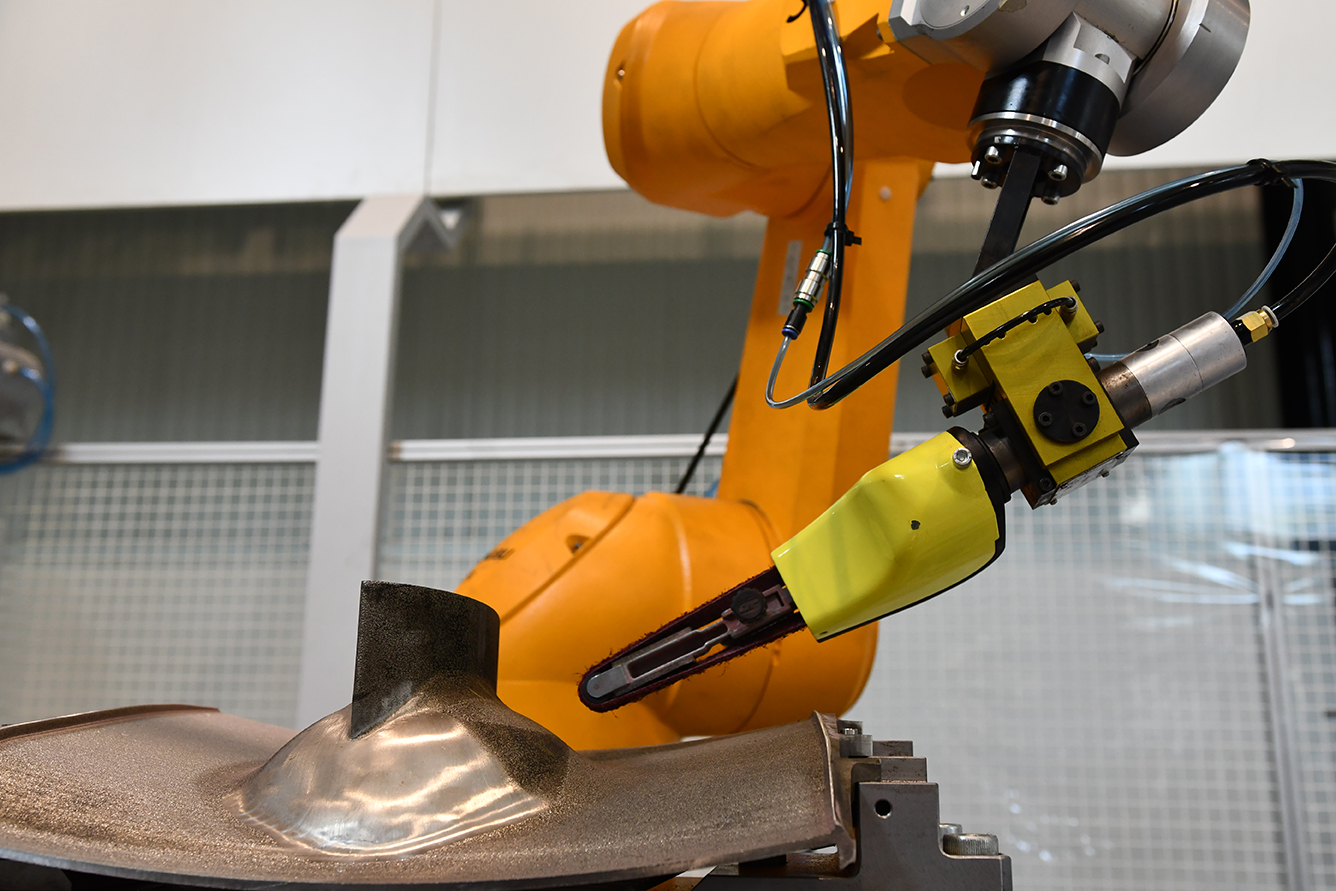Last news about IDEKO.

The new intelligent industrial robot concept developed within the COROMA European project framework allows multiple processes to be carried out for the manufacture of metal and composite material parts.
The research centre IDEKO coordinated this initiative for three years, the budget was more than €7 million and 16 companies, research centres and universities participated.
The final review of the project with the European Commission was carried out through the presentation of demonstrators and practical results.
Higher levels of productivity, flexibility and automation, a reduction in both costs and programming times and an increase in efficiency are some of the results obtained by the COROMA European project. This initiative was conceived and coordinated by the IDEKO research centre, and has allowed work to be carried out on a new intelligent industrial robot concept for the manufacture of metal and composite parts.
This initiative, in which 16 European companies took part, concluded after three years of work, with a review meeting held at the end of 2019 that brought the project partners together in Brussels.
At the meeting, the results and demonstrators were
presented that validated the functionalities of the COROMA system for different
sectors: aeronautics, shipbuilding and energy.
"The aim of this initiative was to design a new intelligent modular and flexible industrial robot concept with the capability to carry out multiple processes for manufacturing metal and composite material parts in different sectors. The results have led to significant progress in advanced manufacturing and the tests carried out have proven its success", said Javier Hernández, responsible for COROMA at IDEKO.
The role of IDEKO
The coordination work performed by IDEKO in this project has contributed to consolidating its leadership in research and development of new industrial applications. Its role as partner has allowed it to promote robotics within its research activity, and to achieve developments in various areas.
On the one hand, IDEKO has robotised the surface finish process of complex metal parts for the aeronautical sector, which guarantees compliance with surface requirements by means of techniques that control the material stock removal capacity. Sanding these types of surfaces is a tedious task, carried out manually up until now, and of course automating this work is of great interest to industry.
As a research centre in the field of manufacture, IDEKO has explored the capabilities of robots for the machining of aluminium parts, with the aim of developing techniques for improving the performance of robotic machining. Thus, within the framework of the project, vibrations suppression techniques were studied, one of the main disadvantages of robots for machining.
Furthermore, within the initiative, IDEKO has developed a new idea for the robot as a moving support for the machining of thin walls of a workpiece. During the machining of these types of workpieces, the tendency of the thin wall is to vibrate due to its low rigidity. The robot is used as a moving support which exerts a controlled force on the workpiece that increases its local rigidity and minimises vibrations and deformations.
Lastly, IDEKO has applied ultrasound nondestructive inspection technology for the inspection of metal workpieces in different fields. One application is the checking of the thickness of a workpiece in a robotic sanding application with the aim of automating the inspection of dimensional tolerances. On the other hand, the verification of zero defects of high added value metal parts has been robotised to increase the reliability of the measurement.
CORO-Modules for three strategic sectors
One of the great achievements of the COROMA project lies in its modular approach, called CORO-Modules, which allows it to adapt to different industrial sectors and manufacturing stages. Each module resolves a specific functionality, so that the combination of different modules seeks to give a response to an industrial problem. With the aim of demonstrating the COROMA project concept, several problems have been solved in the machining area in three industrial sectors: aeronautics, shipbuilding and energy.
Starting from this premise, the need was identified to develop the following modules: CORO-PROG, reprogramming of the robot trajectories for a real scenario; CORO-SENSE, a 3D vision system for the analysis of the real scenario; CORO-HAND, a robotic hand that provides dexterity to the robot; CORO-SAFE, ensures the safety of the operator in a guard-free environment; CORO-MOVE, allows the autonomous navigation of the robot in real scenarios; CORO-COOP, manages the interaction between machines; and lastly CORO-OPTIM, a collection of tools for the optimisation of different industrial processes.
The development
of the modules that make up the COROMA project proposal was achieved thanks to
the collaboration of a consortium of 16 partners from 7 European countries.
These were, together with IDEKO: Soraluce, Stäubli, Equipos Nucleares, Aciturri,
Beneteau, Convergent Information Technologies, BA Systemes, Shadow Robot
Company, Europe Technologies, DIN, the German Standardisation Institute,
IT+Robotics, the University of Nantes, the University of Sheffield, the
Stockholm Royal Technology Institute and DFKI, the German Artificial
Intelligence Centre.